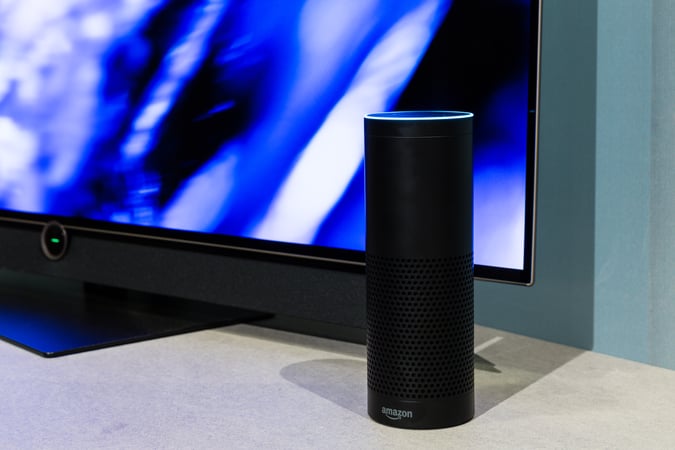We have mentioned a few times that the voice revolution is coming, and today we’d venture a guess to say that it has arrived. For one in five U.S. adults, voice assistants are a regular part of their daily routines, providing solutions, offering advice, and acting as a go-to resource for doing everything from turning off lights to scheduling playdates. Your company needs to embrace voice technology as a customer engagement tool, or risk losing out on countless opportunities to provide key customer touchpoints with your brand.
Voice offers energy companies the opportunity to be where their customers already are and act as a trusted advisor in a way that is both simple and meaningful. When used correctly, voice technology can be an incredible channel to build trust and relationships with your customers.

Your company can race to have a presence on voice platforms like Alexa and Google Home Hub, but it simply won’t be worth the effort unless it’s truly useful to your consumers, easy to integrate into established routines, and extremely personalized to their individual home.
To be useful in a voice-activated world, energy companies must work within the patterns that voice technology has established over the past several years. Your consumers have set routines to listen to the news while they brush their teeth, music while cooking, and turn the heat up without having to get off the couch. Having a meaningful presence in a voice-activated world means being able to weave “energy” into these everyday, established routines.
The easy part? Energy is already a part of your customers' day-to-day activities. Energy is part of lighting. Energy is part of heating and cooling. Energy is part of a toaster that’s on the fritz. Or an electric car that would cost you less to run on a Tuesday morning than on a Saturday afternoon. Energy companies that capitalize on these ordinary life moments with voice will most certainly be the most successful.
Looking at what energy companies like ComEd have already done with voice technology, we believe that the biggest strides will be made with creating voice-activated interactions (known as “skills”) that help notify customers of high-use weeks (think: reminders on Saturday morning similar to push notifications), personalized energy tips (think: “Your dryer is using more energy than usual, try cleaning your filter”) and length of charge time for at-home EV chargers. In summary: the ways that seamlessly get layered into your customers’ routines.
Companies like Powerley and Ecotageous are thinking of the entire consumer experience, and weaving energy management throughout all sorts of Smart Home activities—rather than interactions meant just for energy bills. They’re reading customers’ smart meter data to interpret energy use in a way that’s convenient, specific to customers, and relative to homes in their community, while also allowing them to directly turn systems off and on while in the same conversation with Alexa.
Energy companies that can provide one simple voice-activated solution that turns on the A/C and simultaneously helps customers learn how to save money while doing it will be the most successful. This holistic experience could all be “thanks to my local energy company”—rather than a fragmented experience where energy companies develop hundreds of skills that are competing to become part of the market without any true strategy behind them.
The opportunities to reach customers through voice technology are endless, but will your company be the one that can really break through? Let us help.
